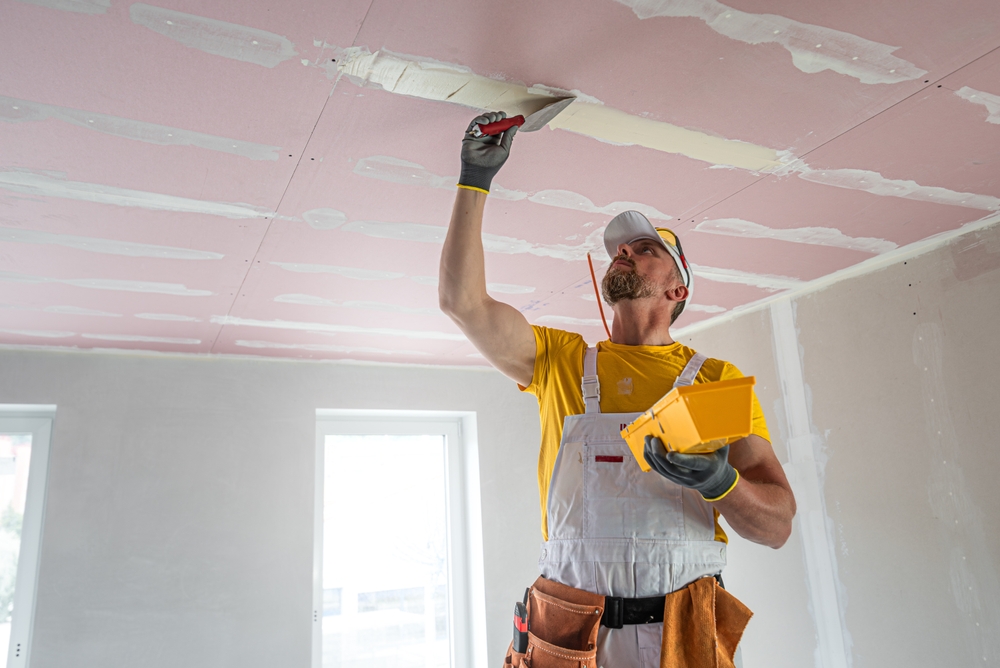

Receiving a notice of alleged defects from a client can be a stressful experience for any residential contractor. However, Kentucky law provides a structured process that gives you a chance to address these claims before they escalate to a lawsuit. The Kentucky Notice and Opportunity to Repair Act (NORA), found in KRS § 411.250 to 411.266, establishes a “right to cure” that both homeowners and contractors must follow. Understanding this law is crucial for protecting your business and managing potential disputes effectively.
This guide will walk you through the key aspects of the Kentucky Right to Cure law, including mandatory timelines and procedures. We will explain the steps a homeowner must take, what your obligations are, and how you can navigate this process to achieve the best possible outcome.
The Kentucky Notice and Opportunity to Repair Act (NORA) is a pre-litigation requirement for resolving construction defect claims in residential projects. Before a homeowner can file a lawsuit against you for alleged defects, they must first provide you with a formal written notice. This notice gives you the opportunity to inspect the property, investigate the claims, and offer a solution.
The primary goal of the law is to encourage resolution outside of the courtroom. It aims to reduce costly and time-consuming litigation by giving contractors a chance to make things right. While the homeowner is required by law to send this notice, it’s important to understand that they are not obligated to accept any offer you make to repair the alleged issues.
The entire Right to Cure process begins with the homeowner. They cannot simply call a lawyer and sue; they must first notify you of the problem.
The law is specific about what this written notice must contain. To be valid, the homeowner’s notice must:
A vague complaint is not sufficient. The notice must give you enough information to understand the scope of the alleged problem.
Once you receive this formal written notice, a critical timeline begins. The homeowner must allow you 21 days to respond. During this period, you have the right to conduct inspections of the property to evaluate the claims. The homeowner is required to provide reasonable access to the property for you, your employees, or any experts you hire to investigate the alleged defect. This inspection is your opportunity to see the problem firsthand and determine its validity and cause.
After conducting your inspections, you must decide how to respond to the homeowner’s claims. Within that same initial 21-day period, you are required to serve a written response to the homeowner (and their attorney, if one is involved). Your response can take one of three forms.
If disputes arise during this process, experienced construction contract disputes attorneys can help you navigate complex negotiations and protect your business interests.
You can offer to repair the defect at your own cost. Your offer must be detailed, outlining the specific work you will perform to fix the problem and providing a reasonable timeline for completion. This shows good faith and a willingness to stand behind your work.
In some cases, a repair may not be practical or desired by the homeowner. You can instead offer a monetary settlement to compensate the homeowner for the alleged defect. This payment is meant to resolve the claim without any further work being done by your company.
If your investigation determines that the claim is not valid, that the issue is not a result of your workmanship, or that it falls outside your warranty, you have the right to deny the claim. Your written response must state that you dispute the claim and will not be remedying the defect or offering a settlement. You must provide the reason for your denial based on your inspection and knowledge of the project.
After the homeowner receives your written offer or denial, the ball is back in their court. They have 10 days from the receipt of your offer to provide a written response, again by certified mail.
The homeowner can either accept or reject your offer.
The Kentucky Right to Cure Act is a mandatory step. If a homeowner files a lawsuit against you without first providing the required written notice and opportunity to cure, you have a strong legal defense. Your attorney can file a motion to dismiss or stay the lawsuit until the homeowner complies with the pre-litigation requirements of NORA. The court will typically pause the legal proceedings to allow the notice-and-offer process to take place as the law intended.
Our construction law attorneys understand Kentucky’s NORA requirements and can help you build a strong defense if proper procedures aren’t followed.
Navigating the Kentucky Right to Cure law requires careful attention to detail and strict adherence to deadlines. A misstep at any stage can impact your rights and expose your business to unnecessary risk. Whether you’ve just received a notice of defect or want to be prepared for the future, having an experienced construction law attorney on your side is invaluable.
Having your contracts reviewed through professional construction contract review services can help ensure proper warranty language and defect procedures are included from the start.
The Cromeens Law Firm specializes in representing contractors and understands the unique challenges you face. We can help you draft a proper response, negotiate with homeowners, and ensure you are fully compliant with the Notice and Opportunity to Repair Act. Don’t wait for a claim to become a crisis. Contact The Cromeens Law Firm today for expert legal guidance and peace of mind.
Karalynn Cromeens is the Owner and Managing Partner of The Cromeens Law Firm, PLLC, with over 17 years of experience in construction, real estate, and business law. A published author and passionate advocate for contractors, she has dedicated her career to protecting the businesses her clients have built. Karalynn is on a mission to educate subcontractors on their legal rights, which inspired her books Quit Getting Screwed and Quit Getting Stiffed, as well as her podcast and The Subcontractor Institute.

